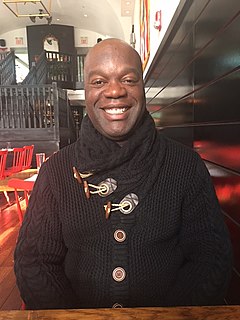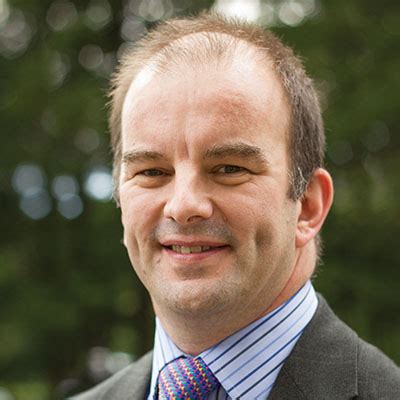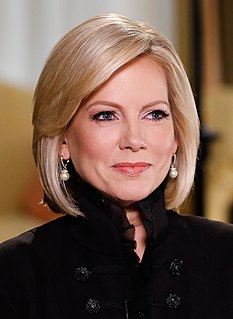A Quote by Louise Hay
A tragedy can turn out to be our greatest good if we approach it in ways which we can grow.
Related Quotes
I saw that we needed to grow but our top line wasn't growing, so we had to find other ways to grow the business. We had to reshape our business and acquire share in a non conventional way. But most tech leaders don't come out of a business background. They really have a parochial point of view. All they know are the go-go years of Silicon Valley. That's the environment in which they were raised.
The answer to the problem of evil does not lie in trying to establish its point of origin, for that is simply not revealed to us. Rather, in the moment of the cross, it becomes clear that evil is utterly subverted for good.... If God can take the greatest of evils and turn them for the greatest of goods, then how much more can he take the lesser evils which litter human history, from individual tragedies to international disasters, and turn them to his good purpose as well.
There is no one kind of thing that we 'perceive' but many different kinds, the number being reducible if at all by scientific investigation and not by philosophy: pens are in many ways though not in all ways unlike rainbows, which are in many ways though not in all ways unlike after-images, which in turn are in many ways but not in all ways unlike pictures on the cinema-screen--and so on.
The ways in which people are damaged are the ways in which they're strong. It's what makes people interesting - what they've overcome and how, and what they haven't and how that's become a good thing. Almost everyone's life is both a gorgeous story and a tragedy. I think being alive is really, really hard, and I'm constantly stunned and amazed by people who make it interesting and beautiful.
Part of my methodological approach is made explicit when I discuss ways in which literature can have philosophical significance. Literature doesn't typically argue - and when it does, it's deadly dull. But literature can supply the frame within which we come to observe and reason, or it can change our frame in highly significant ways. That's one of the achievements I'd claim for Mann, and for Death in Venice.
When I can relax, and be close to the transcendental core of me, then I may behave in strange and impulsive ways in the relationship, ways I cannot justify rationally, which have nothing to do with my thought processes. But these strange behaviors turn out to be right in some odd way. At these moments it seems that my inner spirit has reached out and touched the inner spirit of the other. Our relationship transcends itself and has become something larger.
God knows what is my greatest happiness, but I do not. There is no rule about what is happy and good; what suits one would not suit another. And the ways by which perfection is reached vary very much; the medicines necessary for our souls are very different from each other. Thus God leads us by strange ways; we know He wills our happiness, but we neither know what our happiness is, nor the way. We are blind; left to ourselves we should take the wrong way; we must leave it to Him.



































